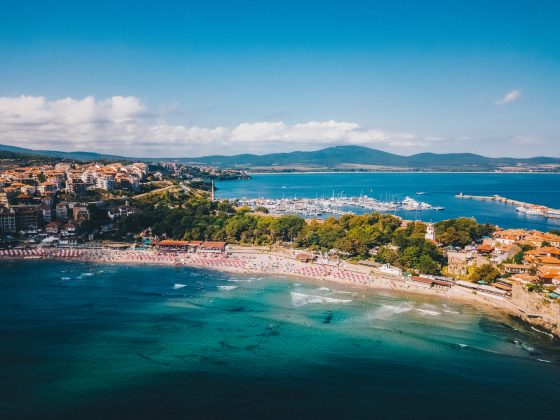If you’re operating an offshore business, you need to come up with a great tax plan and file a variety of forms with the IRS each year. Here’s how to plan and report your offshore business in the most tax efficient way possible.
An offshore business might not need to pay any taxes in the US, but it must always report. When you form the company, when you sell the company, and the existence of an offshore bank account must always be reported. In most cases, you must also report your income and expenses each year.
The first and most basic form an offshore business owned by an American must file is the Foreign Bank Account Report. The FBAR tells the US Treasury that you have an offshore account and gives them the bank contact info and the highest balance for the year.
Because the penalties for failing to file the FBAR are so severe, it’s the most important form an offshore business should file. The FBAR is the focus of the IRS collection program and what they target when they go after a US citizen with unreported offshore income.
Now onto the primary forms to report an offshore business and how to use them to minimize your US taxes.
An offshore business should be operated through a foreign corporation. If you don’t incorporate offshore, and use a US corporation or LLC, or your personal account, you will increase your US taxes by at least 15%.
This is because US companies pay social taxes such as FICA, Medicare, etc. If you use your personal bank account, be it onshore or offshore, you will pay Self Employment tax on your profits.
SE tax and corporate / personal payroll taxes are both around 15%. Because you won’t pay them if you operate through an offshore corporation, failing to set up offshore will cost you at least 15% in taxes each year.
Since you’re operating your offshore business through an offshore corporation, you will need to file IRS Form 5471. Most will need to file this form each year and report income, expense, and ownership changes. It works just like a Form 1120 in the United States and requires you maintain the same expense records as if you were operating in the US.
If your offshore business is a foreign joint venture, were a non-US person(s) owns 50% or more, then you have reduced filing requirements for Form 5471. If a US person(s) owns half the company, you need only file when you incorporate the business and when there’s an ownership change. You don’t need to report income and expense each year.
As I said, you need to keep your expense records. I don’t talk much about income records because I assume this is a cash basis business and all deposits are income. If you’re on accrual, and/or have shareholder loans, you will need a more advanced accounting plan.
Your expenses must be reported and records maintained as you would for a US business. The US IRS has the right to audit ANY business, foreign and domestic, that’s owned by a US person.
So, you should be deducting only ordinary and necessary expenses that are incurred in operating the offshore business. You should keep receipts and be able to prove each expense item should the IRS come calling.
What trips up most people is what income in an offshore business can be held offshore tax deferred and what income must be reported in the United States as earned.
If you are living and working outside the United States, and qualify for the Foreign Earned Income Exclusion, you might not pay any taxes to the US on your offshore business income. This is because your first $102,100 in salary is tax free.
Your first $100,000 in offshore business income will be reported on your personal return using IRS Form 2555. This form identifies the income as salary from a foreign corporation and proves your claim that you qualify for the Foreign Earned Income Exclusion.
Remember that you also pay no self employment or payroll taxes on this money because it’s earned in a foreign corporation.
If a husband and wife both work in the offshore business, they can each take out $100,000 in salary for a total of $200,000 tax free in the US. If the business earns more than this you have two options.
- Take out all of your profits as salary from your offshore business and pay the tax. If you withdraw $180,000 in salary, you get $100,000 tax free and $80,000 is taxable.
- Leave the amount over the FEIE in the corporation as tax deferred retained earnings. When you take a distribution, it will likely come out as a nonqualified dividend from a foreign corporation.
You should always maximize the amount reported on Form 2555 using the Foreign Earned Income Exclusion. Taking the full $100,000 provides tax free profits while leaving money in the offshore business gives you tax deferral, but not tax free. You will pay US tax on those deferred earnings some day.
If you don’t qualify for the FEIE, then your US income tax picture is much more complex.
Let’s say you’re living in the United States and operating your business through an offshore company. This company has no employees abroad and all work to generate the income is performed in the US.
This means that the profits in your offshore business are US source income. You must pay US tax on them as they’re earned. You don’t get to set up a shell company with no employees and no substance abroad and get tax deferral.
If you’re living in the United States and operating your business through a foreign corporation, it should be tax neutral. An offshore corporation should not increase nor decrease your US tax bill. You will still report on Form 5471 and your net profits will likely go on Schedule C or direction onto your 1040 subject to self employment tax.
If part of your business is based in the United States and part is located offshore, you get partial tax deferral.
Let’s say you have 5 employees in the United States and 5 employees in Panama. The quality and level of difficulty of the work that each team performs is about the same. The workers in the United States add as much value to the product or service being sold as do those based in Panama.
Also, the mind and management of the Panama team is in Panama, while the mind and management of the US team is in the US.
Because half the value of the product is being generated by work done in Panama, about half the profits can be held offshore tax deferred. Such an offshore business gets 50% tax deferral.
Note that the above numbers are just a rough example. Your situation will vary greatly and will depend on the level of work done offshore, whether you’re selling a physical good, and many other factors.
When I talk about the level of difficulty and quality of the work done, I’m considering the skill level each team has. For example, you can’t have a team of highly paid programmers in California and a team of minimum wage call center people offshore and call them equal.
As you can see, planning an offshore business is complex. You need to find the right structure, the right jurisdiction, the right banking, and then file the correct forms. A misstep at any of these points can eliminate potential tax benefits and get you in all kinds of trouble with the IRS.
If you would like to speak with an expert, we’ll be happy to work with you to structure your offshore business. We can help with the planning, form the offshore corporation, open the offshore bank account, and prepare your US tax returns.
I hope this article on planning an offshore business has been helpful. For more information, please contact us at info@premieroffshore.com or call us at (619) 550-2743. All consultations are free and confidential.
Contact Author
"*" indicates required fields
Stay Ahead on Every Adventure!
Stay updated with the World News on Escape Artist. Get all the travel news, international destinations, expat living, moving abroad, Lifestyle Tips, and digital nomad opportunities. Your next journey starts here—don’t miss a moment! Subscribe Now!










